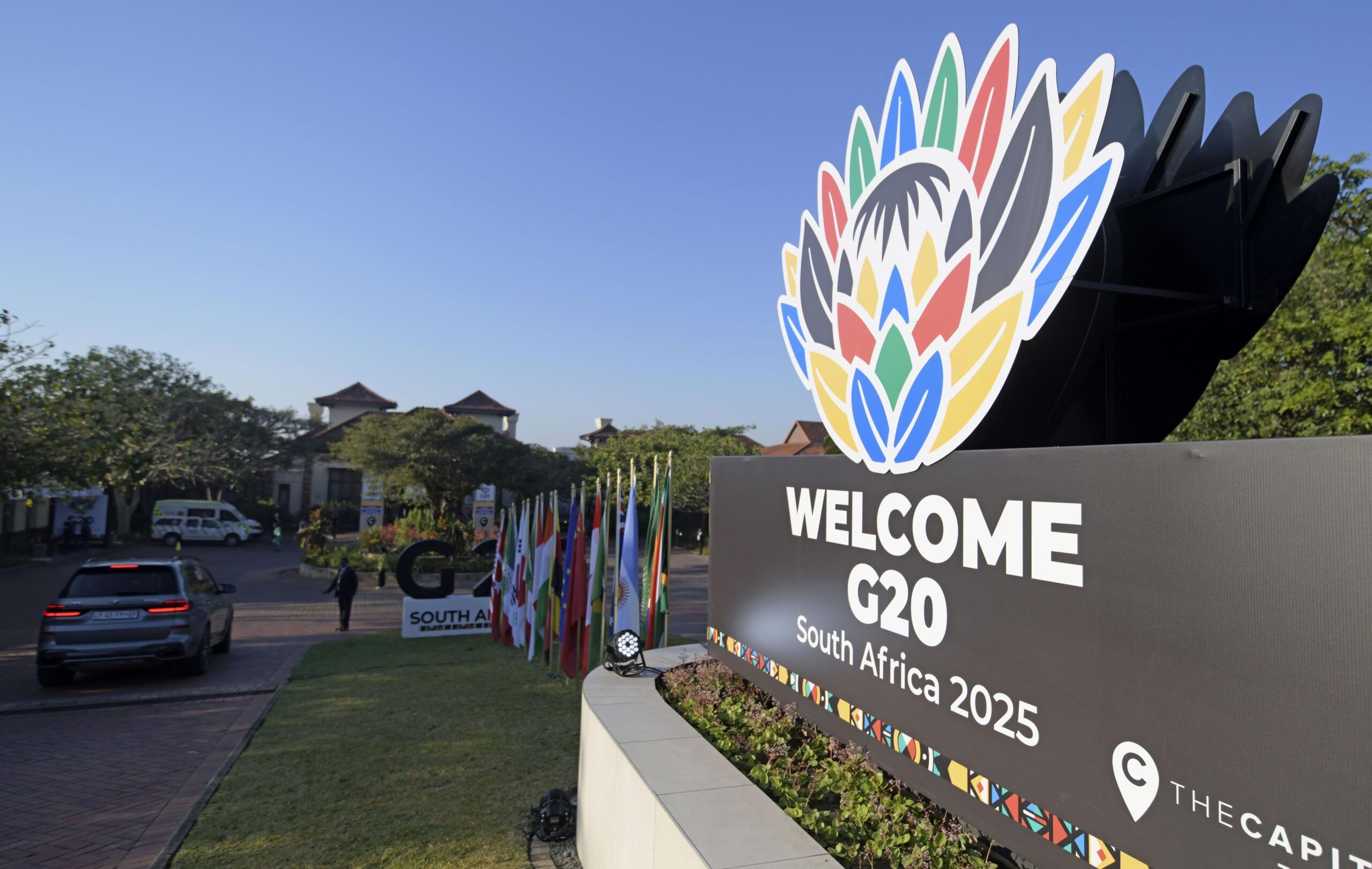African voices are shaping G20 discussions around international financial architecture reform

Reforming the Global Financial Architecture: Why Africa’s Voice Matters
“Reforming the global financial architecture” has become a central theme in multilateral discussions. Today’s global financial system was designed in 1944 at the Bretton Woods conference, which aimed to rebuild postwar Europe. However, there was no African representation at that historic meeting.
Today, the global financial system struggles to meet the needs of Africa, a continent home to 1.5 billion people—nearly a fifth of the world’s population. African countries continue to face high borrowing costs, debt distress, and limited fiscal space. Yet, policy forums are increasingly focused on reforming the financial system to ensure it works for African countries.
One such forum is the Group of Twenty (G20) International Financial Architecture Working Group (IFAWG), a technical working group under the G20’s Finance Track that focuses on monetary, fiscal, and economic issues. I participate in this group as an advisor at the African Development Bank. Here’s my analysis of this year’s IFAWG policy discussions and why they matter for Africa.
Inside IFAWG
Established following the 2008 global financial crisis, IFAWG is mandated to promote stability in the international financial system. Originally, it concentrated on issues such as capital flow volatility and crisis prevention, but its role has expanded dramatically since then.
Today, IFAWG serves as the G20’s central platform for discussions on sovereign debt sustainability, cost of capital, reforms of multilateral development banks (MDBs), and strengthening the global financial safety net. The group submits its recommendations to the G20 Finance Ministers and Central Bank Governors, whose communiqués reflect these policy discussions.
This makes African representation in these working groups critically important. These forums shape policies before ministerial endorsement, and African voices have increasingly influenced the dialogue—especially during South Africa’s 2025 G20 presidency.
South Africa chose “Solidarity, Equality, Sustainability” as the theme for its presidency, aligning priorities with the development needs of Africa and the Global South. Key priorities within IFAWG include strengthening MDBs, mobilizing development finance, addressing sovereign debt sustainability and liquidity challenges, reforming the global financial safety net, and enhancing capital flows to emerging markets and developing economies.
Strengthening MDBs and Unlocking Capital
IFAWG is focusing heavily on strengthening multilateral development banks, recognizing that reforms in this area will be crucial for unlocking much-needed capital at scale. The MDB reform agenda has been ongoing since Italy’s 2021 G20 presidency, which initiated a review of capital adequacy frameworks—tools that help banks determine the capital necessary to support their assets, liabilities, and risks.
This review aimed at boosting MDB lending capacity to respond more effectively to global challenges. Subsequent G20 presidencies in Indonesia, India, and Brazil have continued this work. Notably, Brazil’s presidency developed a roadmap for reforms to improve MDBs’ capacity to address both regional and global challenges and help countries meet their development objectives.
Under South Africa’s presidency, IFAWG has concentrated on creating a monitoring and reporting framework to track the implementation of these reforms. Africa’s role in shaping this conversation is vital for designing financial innovations aligned with the continent’s needs and priorities.
For example, to enhance MDB lending capacity, the African Development Bank (AfDB) and the Inter-American Development Bank collaborated on a joint proposal to use special drawing rights (SDRs)—global reserve assets maintained by the International Monetary Fund—as hybrid capital. Practically, this would allow advanced economies to channel unused SDRs to MDBs like AfDB, counting them still as reserves. These banks could then leverage the SDRs to raise more financing on capital markets, multiplying the impact and providing long-term, low-cost resources for development.
At the ministerial level, the G20 is catching up with these conversations. This is evident from recent communiqués supporting the seventeenth replenishment of the African Development Fund—the concessional financing window of the AfDB Group, which provides grants and low-interest loans to Africa’s poorest countries.
Addressing Debt Sustainability
IFAWG is also prioritizing reform of the debt architecture, acknowledging the urgency of this challenge. African countries on average pay a roughly 300-basis-point risk premium on international borrowing—higher than comparable peers. Interest payments alone consume an average of 18% of government revenues, diverting resources from vital sectors such as health, education, and infrastructure.
Under these conditions, many African countries face a high risk of debt distress. The G20’s Common Framework for Debt Treatment, launched under Saudi Arabia’s presidency in 2020, was designed to provide a structured, coordinated approach to sovereign debt restructuring for eligible low-income countries.
To date, four African countries—Chad, Zambia, Ghana, and Ethiopia—have entered the framework, each managing complex restructurings with mixed outcomes. While the framework was praised for its boldness, its implementation has faced criticism regarding clarity, predictability, and speed.
In response, IFAWG is working to improve transparency and consistency in the debt restructuring process. African voices have been instrumental in pushing for faster, more transparent procedures, predictable timelines, and fair participation of all creditors. Senior African government officials actively advocate for these improvements.
Africa’s Growing Influence on Global Financial Reform
Africa is not just a passive recipient of financial reforms but an active shaper of them. The continent engages robustly in technical debates, influencing foundational shifts across key issues—from reforming multilateral development banks to improving debt restructuring and reducing the cost of capital.
As the G20 Leaders Summit approaches, Africa’s voice is no longer at the margins of global financial reform; it is now central to the discussions. The work of IFAWG exemplifies this new reality.
About the author: Sijh Diagne is an advisor to the Vice President of Finance and Chief Financial Officer of the African Development Bank Group. He represents the African Development Bank at the G20 International Financial Architecture Working Group meetings. He previously served as senior advisor to the Minister of Economy, Planning, and Cooperation of Senegal and as G20 deputy representing the African Union during Senegal’s AU chairmanship in 2022.
Further Reading
- To counter Chinese and Russian influence in Africa, Turkey could be a decisive ally for the US and Europe
By Rama Yade, Defne Arslan — As Turkey develops closer ties to African nations, the US and Europe should partner with Turkey to expand their influence across the continent. (Wed, Sep 10, 2025) - Cameroon could bridge the gap in US cocoa and timber imports
By R. Maxwell Bone — With soaring cocoa prices and growing timber demand, Cameroon stands out as a strategic trade partner, yet US firms have yet to fully seize this opportunity. (Fri, Aug 15, 2025) - Biased credit ratings are costing Africa billions—and worsening its health crises
By Maggie Mutesi — As debt payments outpace spending on health and education, African leaders are calling to overhaul a credit ratings system they say punishes reform and deepens fragility, with Zambia as a case in point. (Thu, Aug 14, 2025)
Image: Venue of the two-day meeting of Group of 20 finance ministers and central bank governors starting July 17, 2025, near Durban, South Africa. (Kyodo)







